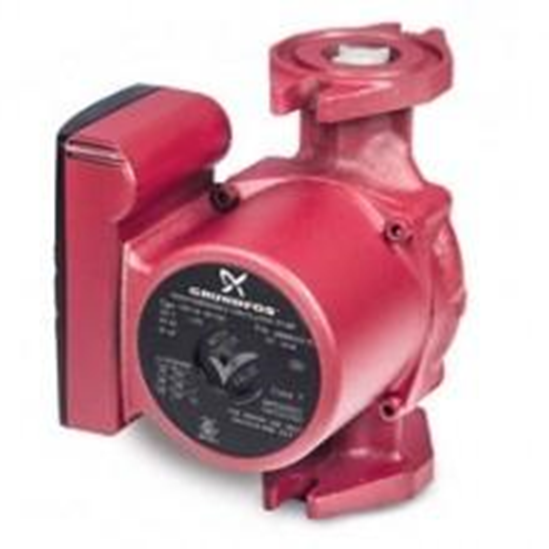Choosing the right pump for optimal water flow in your plumbing system is critical. You need good flow for various uses, such as delivering hot water with speed and maintaining even pressure in the whole house. For this, you need to invest in the best circulation pump and booster pump that fits your needs.
While it typically appears that
circulation pumps and booster pumps serve similar purposes, they are actually
different in type. Also, their purposes could not be more polar opposite. In
this article, we will delve into the world of these two pumps and help you to
make a wise decision for your home.
Take a look!
Understanding Circulation Pump
The circulation pump keeps hot
water running throughout the loop by the motion of its closed-loop system. It
ensures that water does not stagnate in the pipes. Also, it makes sure that the
hot water is served promptly to the tap without having to wait for a
run-through of cold water first.
All types of circulator pumps are perfect for homes with tankless
water heaters and radiant floor heating systems. You can also use these pumps in long plumbing-run homes where the delivery of hot water
may be very sluggish.
Pros
● Saves
cost: By maintaining the
water's temperature, a water circulation pump reduces the amount of energy
required for reheating.
● Less
waste: Water circulation pumps reduce energy and water waste by
giving the user rapid access to hot water.
● Compact: In comparison to booster pumps, they frequently
require less space and are relatively quieter.
Cons
● Unable to operate with a high head.
● It cannot handle fluid with a high viscosity.
● During a plumbing installation, the system
pressure never rises. If it keeps running, it might use more energy.
Exploring Booster Pump
Booster pumps answer the problem of
low water pressure all over the abode. The equipment increases the incoming
water pressure, thus making showers more refreshing and efficient, as well as the
effective operation of your appliances and your home's fixtures.
Booster pumps are commonly used in
homes with low municipal water pressure, tall buildings or buildings with high
water usage demands, large properties, and any other situation where pressure
is lost from long pipe runs.
Pros
● Increased
water pressure: A water
pressure booster pump can significantly increase water pressure, which can be
especially beneficial for watering plants that require a strong flow of water
or for watering plants in hard-to-reach areas.
● Consistent
water pressure: A water
pressure booster pump can maintain a consistent water pressure regardless of
changes in the water supply or demand.
● Efficient
water usage: With higher water
pressure, a booster pump can deliver water more efficiently, which means less
water waste and lower water bills.
Cons
● Cost: A water pressure booster pump can be
expensive to install and maintain.
● Noise: A booster pump
can generate noise while it is operating, which can disturb neighbours.
Choosing the Right Pump: Circulation vs. Booster for Your Needs
Are you confusing what to buy - a
circulation pump or a booster pump? It depends on your specific needs. Here are
a few guiding points:
Flow rate requirements and system demands
The flow pumps keep the flow of hot
water in a closed loop at a constant flow rate. The booster pumps are designed
to influence the flow rates throughout the complete plumbing system in order to
increase the total system pressure.
Pressure consideration and performance
expectation
If the low-pressure problem
throughout the home is the case, then this calls for a booster pump. The
circulating pump only focuses
on the circulation of hot water without putting the consideration of improving
the pressure into account.
Energy efficiency and operating costs
Both these pumps require the
consumption of electric power. However, the circulation pump usually consumes
less energy because the size of the circulation pump is small, which requires
lesser operating pressure.
Installation and maintenance
Under normal conditions, the
homeowner himself may be capable of installing a circulation pump, but the
booster pump, with its size, including some changes to the plumbing, would
probably require professional assistance.
Compatibility with the existing systems
Check the space available to place
the pump. In general, the circulation pump is compact, and the size of the
booster pump could be model-based. Ensure the machine is fit for the existing
plumbing in the system, more particularly the diameter of the pipes and the
types of connecting them.
If you are in search of a
high-quality circulation or booster pump, then PumpProducts has all the options for you. Here, you can get a variety
of brands for your pump needs.
Conclusion
Understanding the roles of
circulation pumps and booster pumps in your specific circumstance will help you
make the right decision. Through this criterion, you will be able to settle on
the best according to your needs from among the factors discussed above for
adequate flow of water, delivery of hot water, and comfort in your house.
In case you are in doubt about which pump you should go for concerning your situation, get advice from qualified professionals.

No comments:
Post a Comment